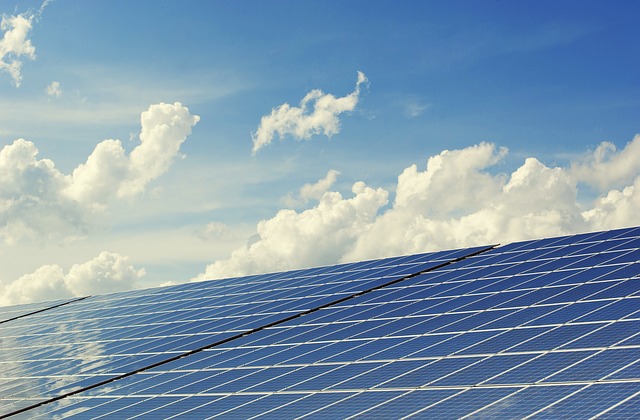Introduction
For billions of years, energy has been produced by the sun. Solar energy is the sun’s beams (solar radiation) that reach the earth. This solar energy can be converted into different forms of energy like heat and electricity. In the 1830s, a solar thermal collector box (a device that collects sunlight to gather heat) is used by the British astronomer John Herschel to cook food throughout an expedition to Africa. The most common types of solar energy such as Photovoltaic systems, Thin-film solar cells, solar water heating systems, Solar power plants, etc.
You may also like: Renewable Alternative Energy Resources – Advantages and Disadvantages
Uses of Solar Energy:
-
Solar energy, is utilized in certain nations to evaporate salt from saltwater
Solar-powered desalination systems, on the other hand, turn salt water into drinking water by converting the Sun’s energy to heat, either directly or indirectly, to fuel the desalination process.
2. Solar Drying of Agricultural and Animal Goods
This is a traditional way of drying agricultural and animal products using solar energy. Agricultural goods are dried in a basic cabinet dryer, which is a box with an insulated base that is painted black on the inside and covered with an inclined clear sheet of glass.
-
Solar cooking:
For cooking, a range of fuels such as coal, kerosene, cooking gas, firewood, dung cakes, and agricultural wastes are utilized.
-
Electricity Generation:
Photovoltaic cells may directly create electric energy or electricity from solar energy. The photovoltaic cell is an energy conversion device that converts solar photons directly into electricity.
-
Green Solar Houses:
A greenhouse is a structure that is covered with a transparent material (glass or plastic) that works as a solar collector, allowing plants to grow by utilizing solar radiation energy. It features heating, cooling, and ventilation systems to regulate the temperature within the greenhouse.
You May also like: What Are Renewable Energy Sources? – Types of Green Energy
Advantages of Solar Energy:
-
Low Operating Costs
Solar power systems require relatively minimal maintenance, with most of it consisting of cleaning the dirt and detritus that may be found on them. This does not have to be done every day or every month, but only a few times a year.
-
Income Source
If you produce more energy than you use, you may sell the extra energy and be compensated in cash.
-
Job Opportunities
According to data, the solar power generation sector in the country employs more people than any other power generation sector. This section will continue to create new job possibilities as it improves.
-
Electricity bills are reduced
Your energy expenses will be lower since you will be meeting some of your energy demands with the power generated by your solar system. The amount you save on your bill will be determined by the size of the solar system and the amount of power or heat you use.
-
No greenhouse gases
The first and most obvious advantage of solar energy is that, except for panel manufacture, it emits no greenhouse emissions. Solar energy is created by conducting the sun’s photons – a method that produces no smoke, gas, or other chemical byproducts.
Also read: Is Transition To Clean Energy Crucial For Our Survival?
Disadvantages of Solar Energy:
-
Poor Efficiency
Solar panels have a poor efficiency of around 15-20%. This implies that only around 20% of the sunlight that strikes it is converted to solar energy. Solar panels are also highly delicate and easily damaged.
-
Solar does not operate at night
The main drawback of solar energy is that it is not continuous. Sunlight is required to generate solar power. As a result, energy must be saved or obtained from elsewhere at night. Batteries are used to store energy.
Also read: What is Wind Energy? – Uses, Advantages, Disadvantages
-
Land wasting
When solar panels are not installed on roofs, they tend to take up greater space since the quantity of energy trapped rises with the area of the solar panel.
-
Solar Energy Storage
Solar energy storage technology has not yet achieved its full potential. While there are several solar drip-feed batteries on the market, they are currently expensive and cumbersome and are better suited to small-scale household solar panels rather than for huge solar farms.
-
It is dependent on the roof
Solar panels are not suitable for many types of roofs, such as slate or cedar tiles. Rooftop expansions and skylights may potentially impede installation.
Also read: The Rise of Solar Energy in Pakistan
Conclusion:
Despite the disadvantages of solar energy lot of people are benefiting from solar energy, Solar power is a massive source of immediately usable energy that eventually generates various energy resources.
You might also like to read: Why We All Should Move to Clean Renewable Energy
We hope you liked this post! Please comment below if you have any suggestions, comments or feedbacks! We at #envpk love hearing from readers! Thanks




